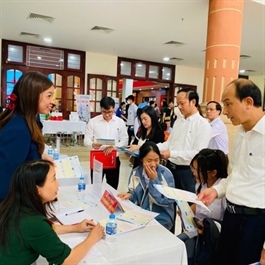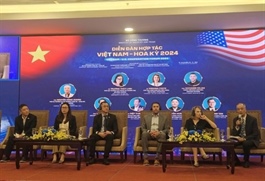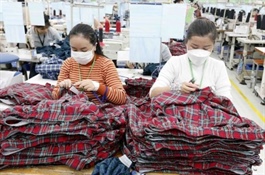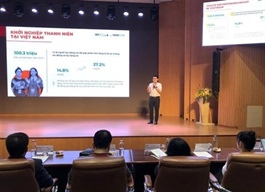Vietnam premier calls for Chinese investment in key infrastructure projects
Vietnam premier calls for Chinese investment in key infrastructure projects
Vietnamese Prime Minister Pham Minh Chinh on Monday met with a delegation of 18 Chinese enterprises in Hanoi, suggesting them to invest in Vietnam’s major infrastructure projects including bridges and railways.
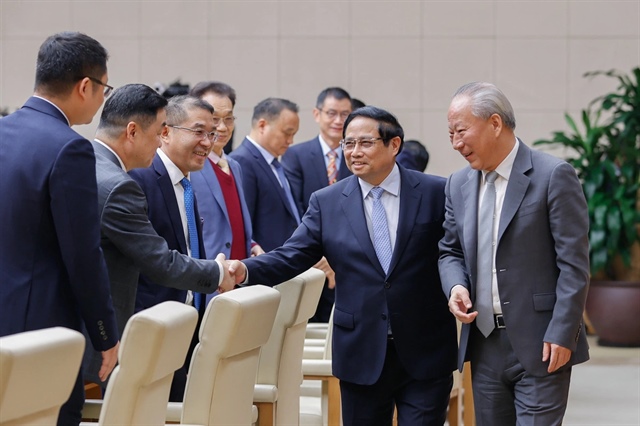
Vietnamese Prime Minister Pham Minh Chinh (R, 2nd) welcomes a delegation of 18 Chinese businesses, December 9, 2024. Photo: Vietnam Government Portal |
The delegation is visiting Vietnam to explore cooperation and investment opportunities.
Yan Jiehe, who leads the delegation, is the founder and chairman of two Fortune 500 companies: China Pacific Construction Group and Susun Construction Group.
In his welcome address to the group, PM Chinh praised Chinese businesses for boosting cooperation and investment activities in Vietnam and stressed his desire to continue the Vietnam-China comprehensive strategic cooperative partnership.
He also recognized the contributions of the Chinese business community and their role in creating bountiful development in bilateral relations.
The PM noted that bilateral trade has quadrupled over the past decade, with Vietnam being China's largest ASEAN trading partner and China becoming Vietnam’s largest import market.
China ranks sixth among 146 countries and territories investing in Vietnam.
The premier believed both countries are contributing to building a strategically significant Vietnam-China community with a bright future.
The Vietnamese government is encouraging Chinese enterprises to expand investment cooperation in areas of their strength and Vietnam's needs, such as infrastructure, creative innovation, artificial intelligence, cloud computing, Internet of Things, green development, renewable energy, smart urban building, digital transformation, and high-quality manufacturing industry.
PM Chinh underlined that Vietnam is a transitional economy and focuses on strategic breakthroughs, including developing key infrastructure, especially transport systems.
He therefore suggested the China Pacific Construction Group and other Chinese enterprises consider major traffic infrastructure projects like the Tu Lien Bridge and Ngoc Hoi Bridge spanning the Red River in Hanoi.
Chinese investors could also join the Van Cao-Ngoc Khanh-Lang-Hoa Lac railway route in Hanoi, metro lines or urban railways connecting Tan Son Nhat International Airport in Ho Chi Minh City and Long Thanh International Airport under construction in southern Dong Nai Province, and many cross-border railway routes in northern provinces, including the Lao Cai-Hanoi-Hai Phong, Lang Son-Hanoi, and Quang Ninh-Hai Phong lines.
He stressed that all investment projects should aim for mutual benefit, guided by the principle of 'harmonized benefits, shared risks.'
Echoing PM Chinh's vision, Yan and other Chinese business leaders voiced their interest in strengthening cooperation and expanding investments in Vietnam across various sectors, including construction, energy, trade, real estate, electrical equipment, electronics, environmental protection, healthcare, biotechnology, chemicals, new materials, and agricultural production.
Yan assured that Chinese investors would prioritize progress, quality, and fair pricing in all their projects in Vietnam.
He said that Chinese businesses view Vietnam as their second home and are committed to supporting the country's development in the long term.
Appreciating these sentiments, PM Chinh pledged to instruct relevant agencies to create favorable conditions for foreign investors and to swiftly address any challenges they encounter while operating in Vietnam.












